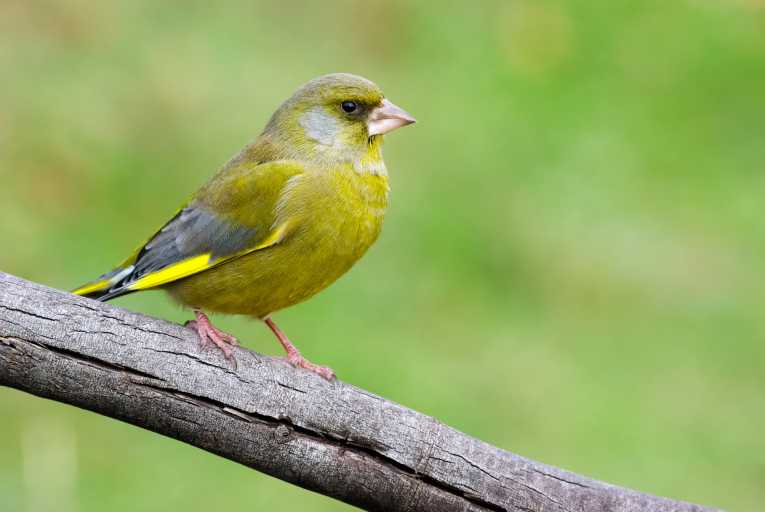Forget ideas that an animal's personality as just a 'cutesy' projection from us humans. Not only do greenfinches show diverse personalities, but novel research into their body chemistry - published in the latest Journal of Experimental Biology - shows that bolder is better when it comes to life chances. That's because the braver finches have lower levels damaging oxidants, which may compensate for their risk taking.
In order to test out ideas on how personality traits can affect the health of animals, the scientists -- from the Universities of Glasgow and of York - took 22 finches and tried out various toys in their cages, to try and bring out their personal quirks.
First of all a large and bright-colored cookie cutter was placed in their bowls. To a greenfinch this was perceived as a potential threat. But the bravest finches walked up to their food to investigate within a few seconds; whereas the less bold birds might wait for half an hour to check out the 'dangerous' cookie cutter.
Then the researchers attached a less-threatening item, of real potential interest, to their perches. This was aimed to pique the finches' curiosity - and again, some birds were quick to investigate the new item, whereas other weren't interested. The timings for courage and curiosity varied widely, and also showed no obvious relationship to each other.
Next the team took blood samples, and looked at the bird's 'oxidative stress profiles'. That involved looking for damaging levels of oxygen metabolites, as well the anti-oxidant defenses that each bird had. They found that both boldness and curiosity were rewarded with better stress profiles.
Less brave birds had both higher oxygen toxins, and lower defenses to them. And those birds that were least curious also had weaker anti-oxidant defenses. The conclusion was clear - immune systems seem to favor the brave and the bold. But why exactly is this?
Dr Kathryn Arnold, from the Environment Department at York, conjectured that in the wild, an inter-play may be at work between risk-and-reward - one that evened the playing field across personality types. ''Neophobic birds - those that are afraid of new things -- may suffer high costs of oxidative stress and die early because they paid these physiological costs, but they might also be less likely to be eaten by a predator because they are more wary than bolder birds.''










